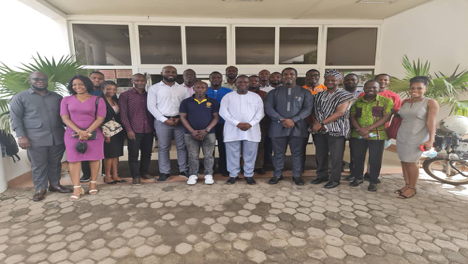Inadequate policies, inability to sustain existing energy policies implemented by government, as well as lack of awareness are the leading causes of energy inefficiency in the country, energy economist and senior lecturer at the Ghana Institute of Management and Public Administration (GIMPA), Dr. Philip Kofi Adom, has said.
He said there is a need to implement strong policies that guide consumers to effectively manage energy resources, as well policies which will put the country on the global front as an energy-efficient nation.
“We need strong regulations and policy-guards. For example, I control my resources and may decide to use my resources; but if is there is a law that actually tells me how to spend my resources, then it can improve quality. So we need to make sure that the regulations we discussed are implemented to the letter and make sure that, nationally, we have a policy to put us globally out there to say ‘okay, we’ve made some commitment’,” he said.
He called on all stakeholders to make conscious efforts in ensuring that the situation of energy inefficiency is reversed.
“We need all hands on board, because becoming an energy-efficient state requires that we begin to have some kind of a rethink; some kind of a reorientation of the way that we even accept innovations, and how we spread of awareness,” he said.
He was speaking at a workshop organised by the Environmental and Natural Resource Research Initiative (ENRRI), in partnership with the Ghana Institute of Management and Public Administration (GIMPA), on the topic ‘Sustaining Energy-Efficiency Efforts’ on Thursday, November 25th, 2021.
Stressing the importance of attaining energy-efficiency, he noted that poverty can be substantially eliminated if government considers energy-efficiency as a pro-poor policy and makes room for citizens to participate in the process of attaining an energy-efficient country.
“Improving energy-efficiency somehow indirectly transfers income to the poor; so if we want to elevate income for the poor, we should see it as a pro-poor policy – just like we are now providing Free Senior High Schools. Energy-efficiency is an investment; you need money and there are financial constraints. So, what is government doing in that regard to make sure the financial constraints imposed on people are actually lifted? And I think if we begin to address some of these issues, then we can achieve that sustainable energy-efficiency status,” he said.
He however noted that a conscious effort must be made to ensure energy-efficiency is maintained when achieved.
“One thing we should also note as a state is that once we achieve it, we need to maintain it. We should not think that it is a permanent state once we are energy-efficient. Hopefully, we will get there; and once we get there, we still have to make sure we maintain it. This means that we need to have a more robust system, a system that can never be compromised; and if someone compromises the standards, the law has to be applied to the letter,” he said.
ENRRI-EfD Ghana
The workshop was organised by ENRRI-EfD Ghana from various sectors; including the Energy Commission, University of Environment and Sustainable Development, the media and Institute of Statistical, Social and Economic Research (ISSER), Legon.
ENRRI-EfD Ghana brings together accomplished researchers with varied expertise in environmental economics from Ghana and beyond to conduct evidence-based research and advise government and development partners on policy options for managing the environment and scarce natural resources.
Recognising the importance of the United Nation’s Sustainable Development Goals (SDGs) in aligning global development efforts, ENRRI-EfD Ghana strives to align its work with these goals by demonstrating a strong commitment to supporting the achievement of SDGs which address the environmental dimensions of development – notably SDG 7 (affordable and clean energy).










